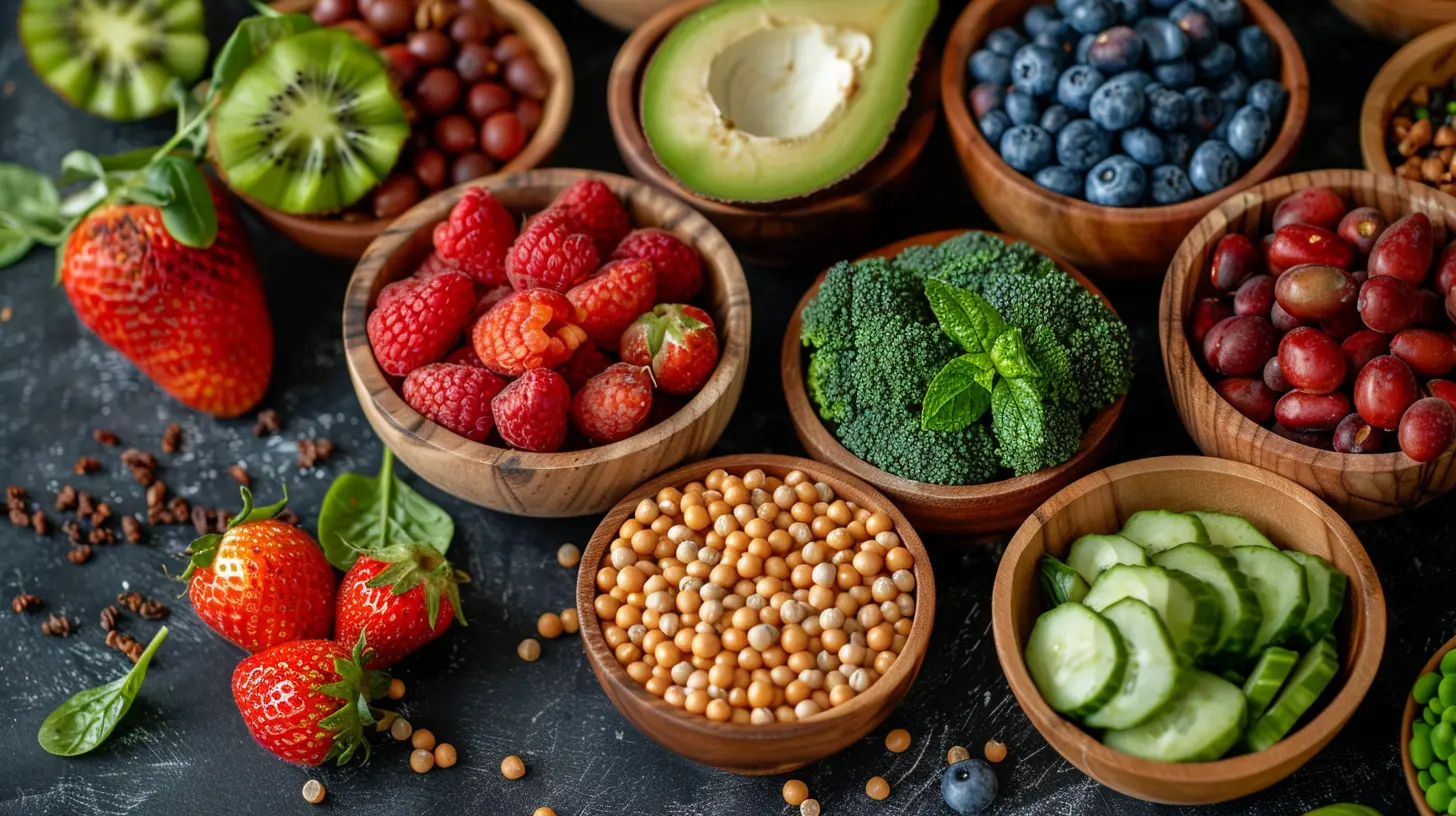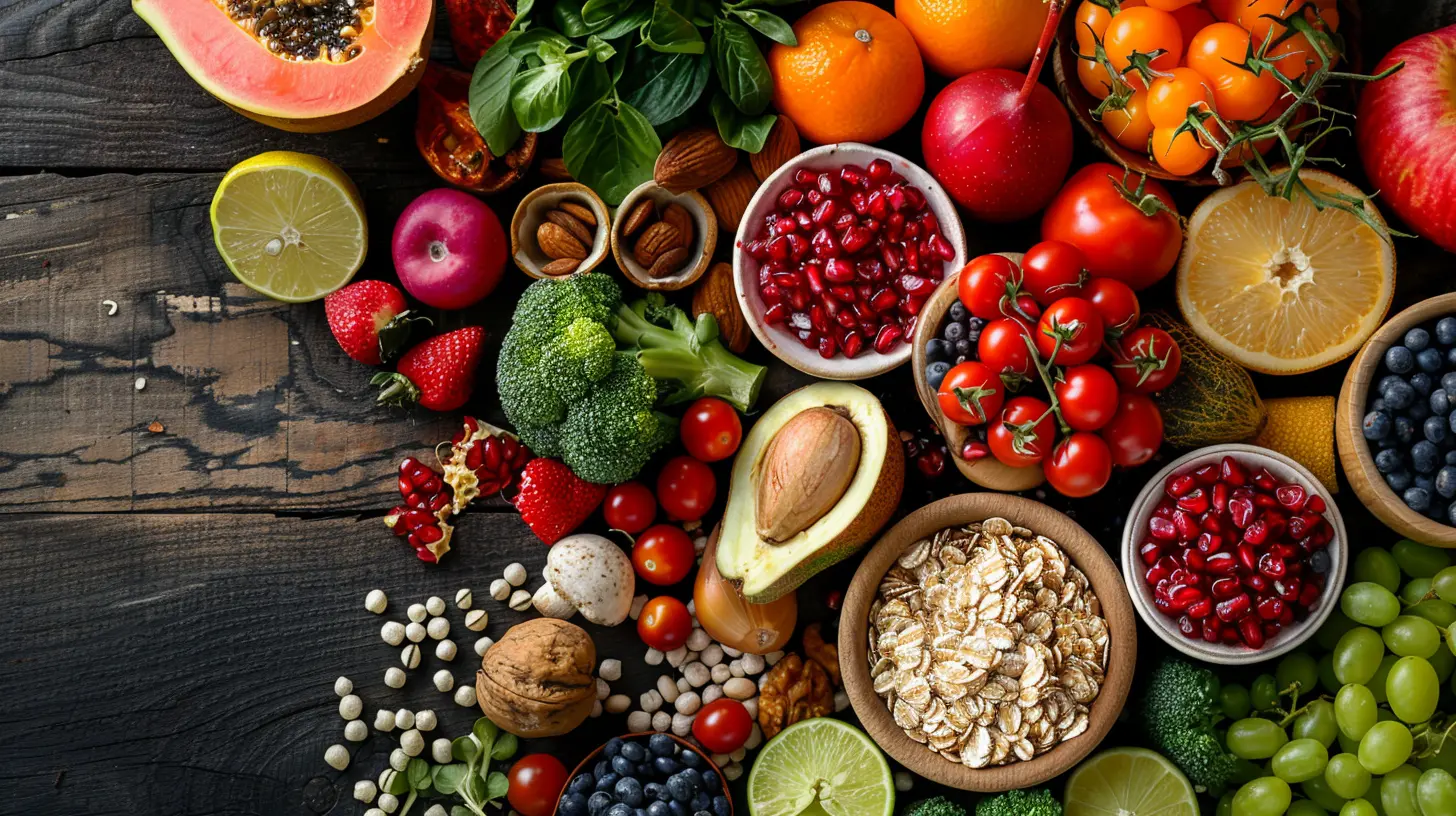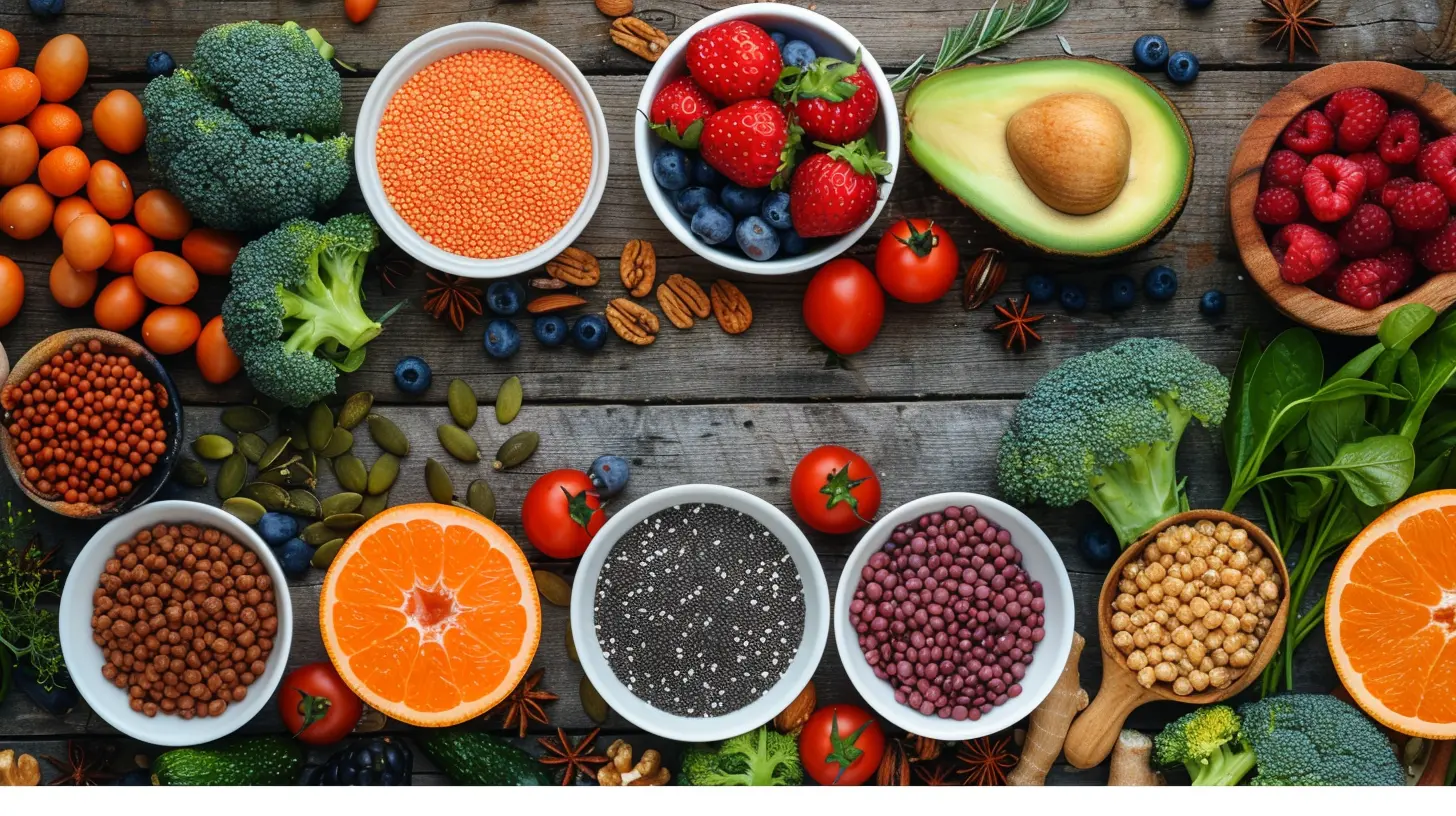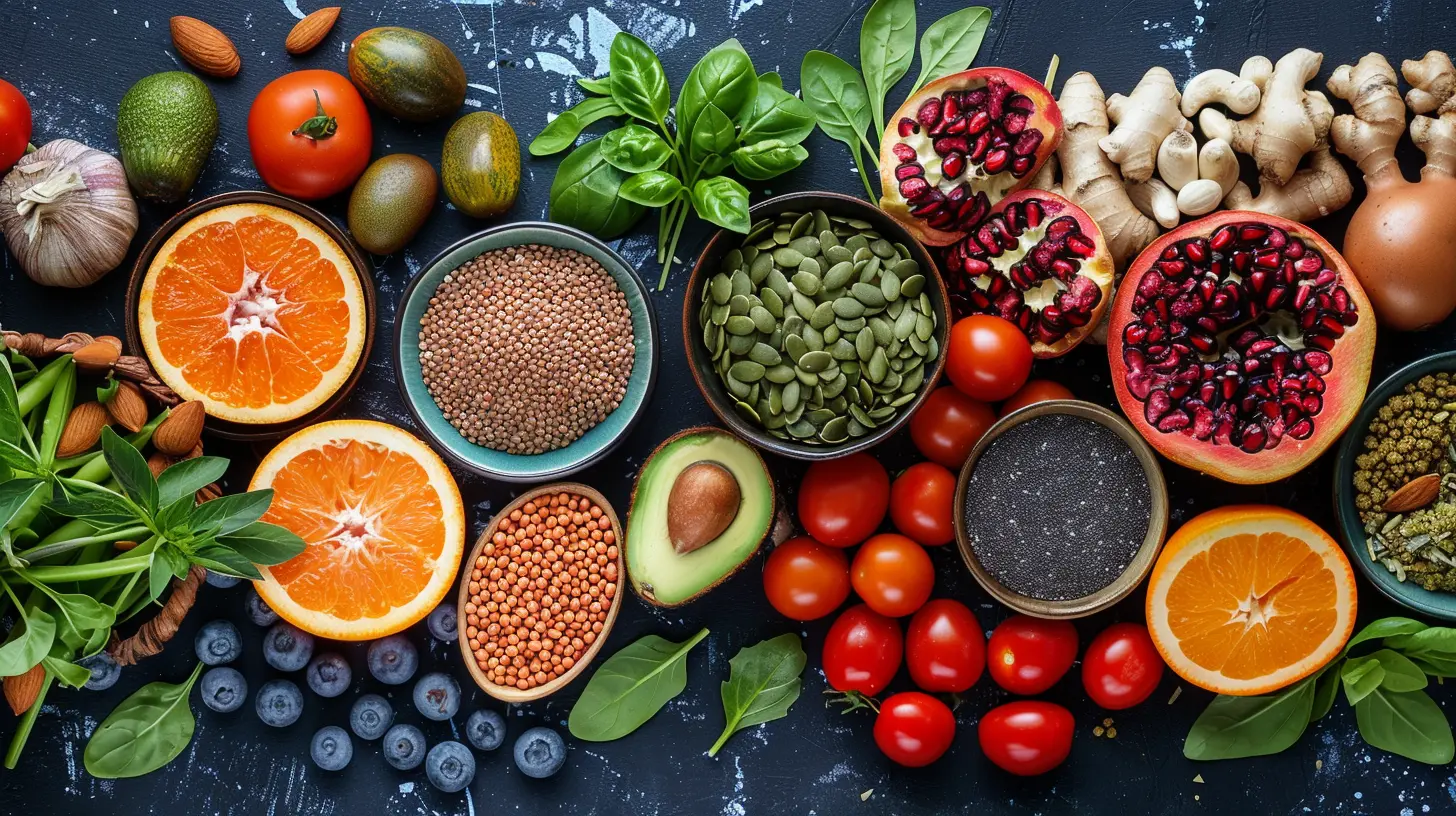Boosting Immunity with a High-Fiber Diet
1 November 2025
Introduction
Ever feel like you're catching every bug that comes your way? If so, your immune system might need a little boost. While most people focus on vitamin C or zinc to strengthen their immunity, they often overlook a crucial factor—dietary fiber. Yes, fiber! That thing we usually associate with digestion does so much more. A high-fiber diet can help fortify your immune defenses, keeping you stronger and healthier.
In this article, we’ll break down how fiber supports immunity, the best fiber-rich foods to eat, and how you can effortlessly incorporate them into your meals. Ready? Let’s get started!

How Does Fiber Boost Immunity?
Most people think fiber is just for gut health, but it plays a much bigger role. Your gut is home to trillions of bacteria—some good, some bad. The good ones, known as probiotics, rely on fiber to thrive. When you feed these helpful microbes, they, in turn, support your immune system.Here’s how fiber helps:
1. Nourishes Gut Bacteria
Your gut microbiome is like a tiny army protecting you from infections. Fiber acts as their food, helping good bacteria multiply and keeping harmful ones in check. A well-balanced gut means a stronger immune response.2. Reduces Inflammation
Chronic inflammation weakens your immune system, making you more susceptible to illnesses. Certain fibers, like those found in oats and flaxseeds, can help reduce inflammation and keep immune responses in balance.3. Supports the Production of Short-Chain Fatty Acids (SCFAs)
When gut bacteria ferment fiber, they produce SCFAs like butyrate, which strengthen the gut lining and prevent harmful pathogens from entering the bloodstream. Think of it as reinforcing the walls of a castle to keep invaders out!4. Regulates the Immune System
Fiber helps keep immune cells in check, preventing them from overreacting. This is crucial because an overactive immune system can lead to autoimmune diseases, where the body attacks itself.
Best High-Fiber Foods for Immunity
Now that we know why fiber is essential, let’s talk about the best sources. You’ll want to include a variety of fiber-rich foods in your diet to maximize immune benefits.1. Fruits
Nothing beats nature’s candy! Fruits are packed with fiber, vitamins, and antioxidants that strengthen immunity. Some fiber-rich stars include:- Apples (with skin!)
- Berries (strawberries, blueberries, raspberries)
- Pears
- Oranges
- Bananas
2. Vegetables
Veggies are fiber powerhouses and come with immune-boosting nutrients like vitamin C and beta-carotene. Make sure to include:- Broccoli
- Carrots
- Brussels sprouts
- Sweet potatoes
- Spinach
3. Whole Grains
Refined grains have been stripped of fiber, so opt for whole grains like:- Oats
- Brown rice
- Quinoa
- Whole wheat bread/pasta
- Barley
4. Legumes
Beans and lentils don’t just provide protein; they’re also loaded with fiber. Some great options include:- Chickpeas
- Black beans
- Lentils
- Kidney beans
- Green peas
5. Nuts & Seeds
Crunchy and delicious, nuts and seeds are full of fiber and healthy fats that support immunity. Try adding:- Chia seeds
- Flaxseeds
- Almonds
- Walnuts
- Sunflower seeds

How to Add More Fiber to Your Diet (Without Overwhelm!)
Switching to a high-fiber diet doesn’t have to be complicated. Start small and gradually increase your intake to allow your digestive system to adjust. Here are some practical ways to do it:1. Start Your Day with a Fiber-Rich Breakfast
Swap sugary cereals for oatmeal topped with berries and chia seeds. Or, try whole-grain toast with avocado.2. Snack Smart
Instead of chips, munch on carrot sticks with hummus, a handful of almonds, or an apple with peanut butter.3. Add More Vegetables to Your Meals
Toss spinach into your omelet, add extra veggies to your pasta, or blend some greens into your smoothie.4. Replace White Grains with Whole Grains
Switch to brown rice, whole wheat bread, and quinoa for a simple fiber upgrade.5. Eat More Legumes
Try a lentil soup, add beans to your salad, or make a chickpea curry. These tasty additions will do wonders for your fiber intake.6. Hydrate!
Fiber absorbs water, so make sure to drink plenty of fluids to keep digestion smooth and prevent bloating or discomfort.
Common Myths About Fiber and Immunity
Before we wrap up, let’s clear up some misconceptions:Myth #1: Fiber Only Helps Digestion
As we’ve seen, fiber does way more than just keep you "regular." It plays a critical role in immune support, reducing inflammation, and balancing gut bacteria.Myth #2: You Need Expensive Supplements for a High-Fiber Diet
Nope! Natural fiber from whole foods is more effective and provides additional vitamins and minerals that supplements lack.Myth #3: Fiber Causes Bloating and Discomfort
This only happens if you increase fiber too quickly. Gradual changes and staying hydrated prevent these issues.Conclusion
Boosting your immunity doesn’t have to be complicated. A high-fiber diet does wonders for keeping your gut happy, reducing inflammation, and strengthening your body's defenses. By simply incorporating more fiber-rich foods into your daily meals, you can naturally support a stronger immune system.So, the next time you think about building immunity, don’t forget fiber—it could be your immune system’s best friend!
all images in this post were generated using AI tools
Category:
Fiber Rich DietAuthor:

Holly Ellison
Discussion
rate this article
1 comments
Andrew Lee
Great read! It's amazing how simple dietary changes, like adding more fiber, can make such a big difference in our health. I’m definitely inspired to update my meals!
November 5, 2025 at 3:45 PM

Holly Ellison
Thank you! I'm glad you found it inspiring—small changes can have a huge impact on our health!


